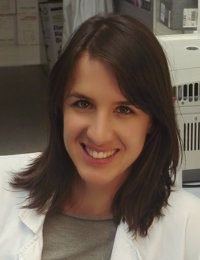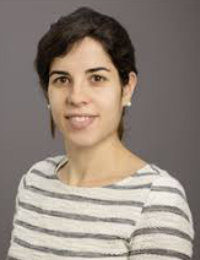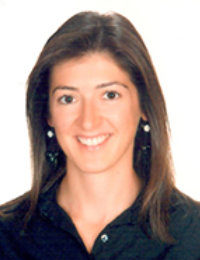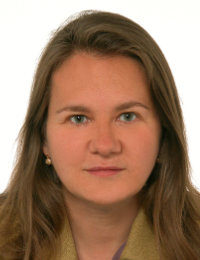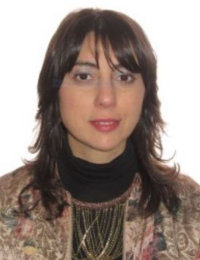Abstract: During evolution genes are continuously gained and lost, contributing to the adaptation of the organism to a changing environment. The best understood mechanism for the birth of new genes is the duplication and modification of already existing genes. However, in recent years, evidence has been gathered that some ...
Bioinfo4Women seminars / SORS
Building from scratch: de novo gene birth
Speaker:
Mar Albà
ICREA Researcher at the Research Program on Biomedical Informatics (GRIB) from Hospital del Mar Research Institute (IMIM) and Universitat Pompeu Fabra (UPF).
Abstract: At least 70 human RNA-binding proteins contain a prion-like domain (PrLD). PrLDs are low complexity domains which resemble in composition the infectious yeast prions. Mutations in PrLDs are associated to the onset of many neurodegenerative conditions, such as Amyotrophic Lateral Sclerosis (ALS). PrLDs are able to ...
Bioinfo4Women seminars / SORS
Speaker:
Benedetta Bolognesi
Junior Group Leader, IBEC
Abstract: Mismatch repair pathway (MMR) is essential to maintain genome stability. While MutS and MutL are essential for performing the initial and steps of the route, those are missing in many Archaea, most Actinobacteria, and other prokaryotes. However, these organisms exhibit similar spontaneous mutation rates to those ...
Bioinfo4Women seminars / SORS
A novel MMR pathway in prokaryotes
Speaker:
Ana Rojas
Group leader of the Bioinformatics and Computational Biology Group at the Andalusian Center for Developmental Biology (CSIC)
Abstract: In this talk we will give an overview of the genomic analysis pipeline, from data generation to its analysis. In doing so, we will identify the main challenges arising in the genomic setting. These include dealing with errors introduced during the sequencing process, designing state-of-the-art specialized compressors
Bioinfo4Women seminars / SORS
Genomic analysis pipeline: overview, challenges, and proposed solutions
Speaker:
Idoia Ochoa
Assistant Professor University of Illinois at Urbana-Champaign (UIUC) IL, USA
Abstract: The tremendous boost in the next generation sequencing technologies and in the “omics” technologies makes it possible to look for the coordinated behavior among different levels of biochemical activity. In contrast to isolated molecules, network and pathway oriented analyses are thought to better capture pathological
Bioinfo4Women seminars / SORS
Dissecting the Molecular Mechanisms of Complex Diseases Through a Pathway and Network Oriented Analysis of -omics Data
Speaker:
Burcu Bakır-Güngör
Ph.D.Assistant Professor Department of Computer Engineering Faculty of Engineering Abdullah Gul University
Abstract: In the last years Systems Biology has provided frameworks to integrate high-throughput biological and clinical data, providing significant insights into some of the fundamental roles of genes and proteins in maintaining a functional cellular state. However, it is still challenging to employ quantitative methods to ...
Bioinfo4Women seminars / SORS
Mutations and Variations in Health and Disease: Protein Interaction Networks and 3D Structure Information
Speaker:
Prof. Franca Fraternali
Randall Centre for Molecular and Cellular Biology, King’s College London, UK
Abstract: Disease prevention can highly benefit of a personalized medicine approach through the accurate discrimination of individuals at high risk of developing a specific disease from those at moderate and low risk. To this end precise risk prediction models need to be built. This endeavour requires a precise ...
Bioinfo4Women seminars / SORS
Integrative data approaches towards a personalized prevention of cancer: The epidemiological vision
Speaker:
Núria Malats
MD, MPH, PhD Genetic & Molecular Epidemiology Group Spanish National Cancer Research Centre (CNIO) Madrid, Spain
Abstract: Antibodies have been very extensively investigated for decades and therefore much is known about their sequence-structure-function relationship. The ability of accurately modeling the structure of antibodies stems from the recognition that the hypervariable loops only exhibit a limited number of main-chain ...
Bioinfo4Women seminars / SORS
Constraints and variability of complementarity determining regions in antibodies
Speaker:
Alba Lepore
Postdoctoral researcher at the Biozentrum University of Basel & SIB Swiss Institute of Bioinformatics
Abstract: We are faced with a flood of molecular and clinical data. Various bio-molecules interact in a cell to perform biological function, forming large, complex systems. Large-scale patient-specific omics datasets are increasingly becoming available, providing heterogeneous, but complementary information about ...
Bioinfo4Women seminars / SORS
Mining the Integrated Connectedness of Biomedical Systems
Speaker:
Natasa Przulj
Professor of Biomedical Data Science at University College London (UCL) Computer Science Department
Abstract: Human cells bears in its nucleus about 2 meters of DNA containing the genes that shape the being and the manner in which is packed regulates its function. Long-range physical interactions between regulatory elements and gene promoters play key roles in transcriptional regulation. The vast majority of interactions are
Bioinfo4Women seminars / SORS
3D Lineage-Specific Genome Architecture Links Regulatory Elements and Non-coding Disease Variants to Target Gene Promoter
Speaker:
Biola M. Javierre
PhD, Josep Carreras Leukaemia Research Institute
Abstract: Gliomas are the most frequent brain tumors worldwide. Gliomas make up about 30% of all brain and central nervous system tumors, and 80% of all malignant brain tumors. Diagnosis of the glioma tumor type and its grade is a most essential step in order to suggest a right treatment for the glioma patients. We present a ...
Bioinfo4Women seminars / SORS
Diagnosis of low burden tumors using circulating cell-free DNA
Speaker:
Milana Frenkel-Morgenstern
Principal Investigator and Senior Lecturer at Azrieli Faculty of Medicine, Bar-Ilan University & Data Science Institute and BSC Senior Researcher
Abstract: Networks are scaling-up the analysis of gene and protein functions, hence offering new avenues to study the diseases in which these genes and proteins are involved. I will discuss the exploration of biological networks containing thousands of physical and functional interactions between proteins. In particular, we ...
Bioinfo4Women seminars / SORS
Mining networks to study rare and common diseases
Speaker:
Anaïs Baudot
Creator of the “Networks and Systems Biology for Diseases” team in the Marseille Medica Genetic Unit in 2018


